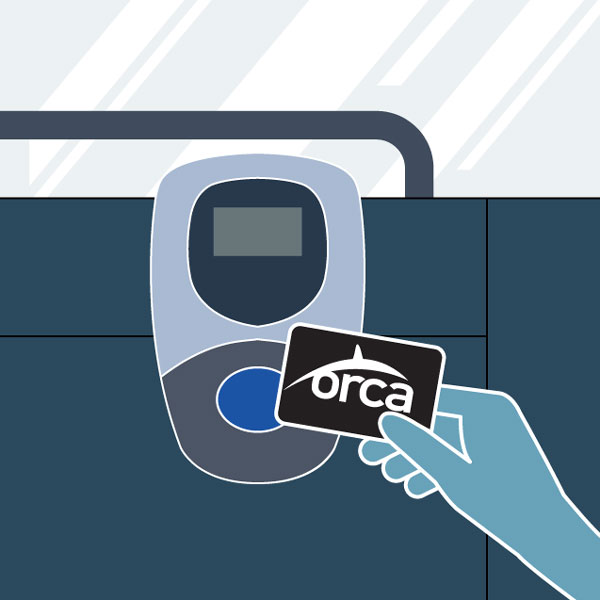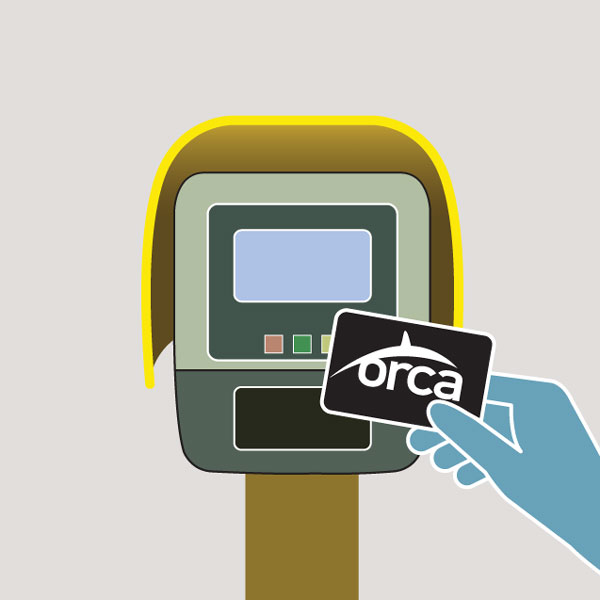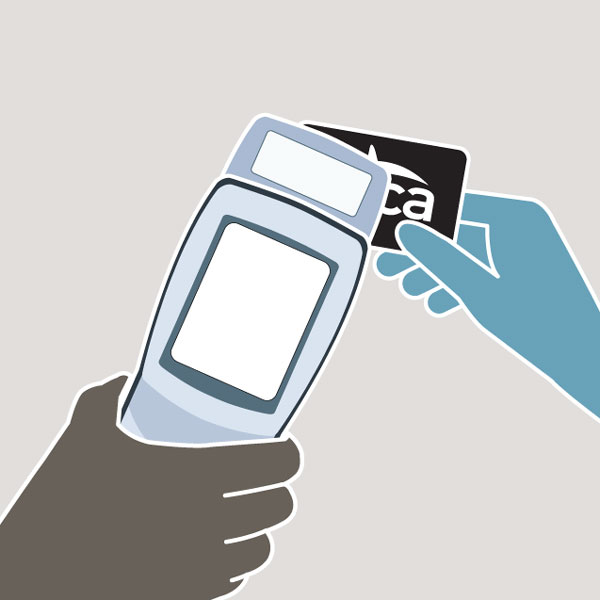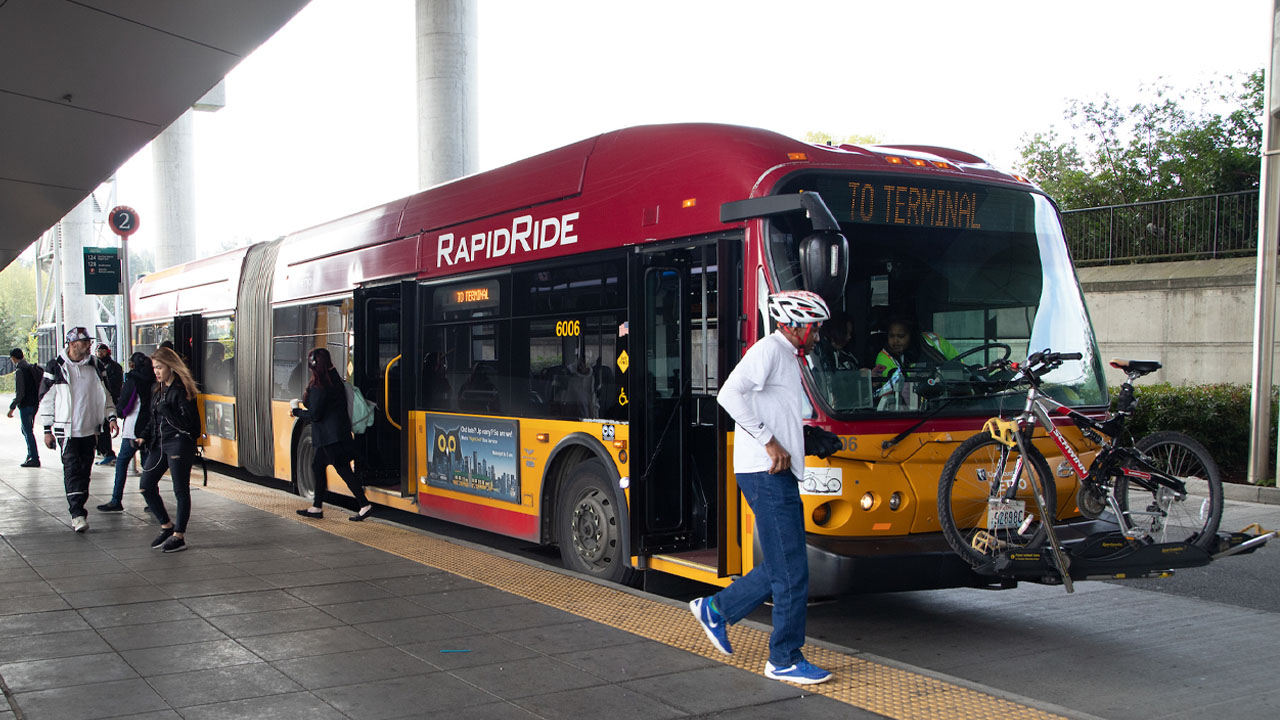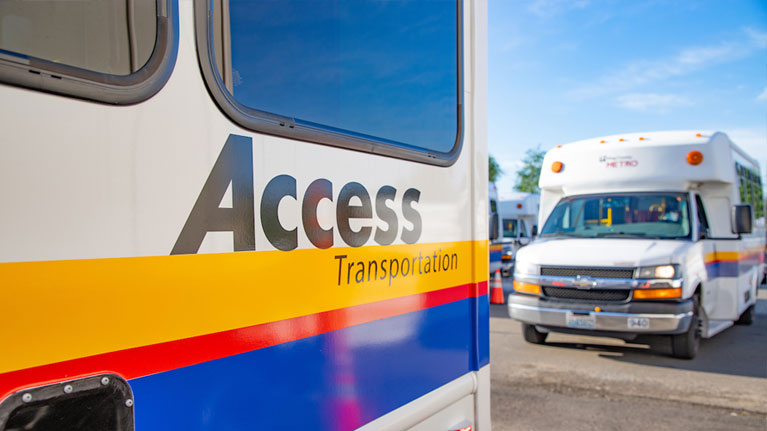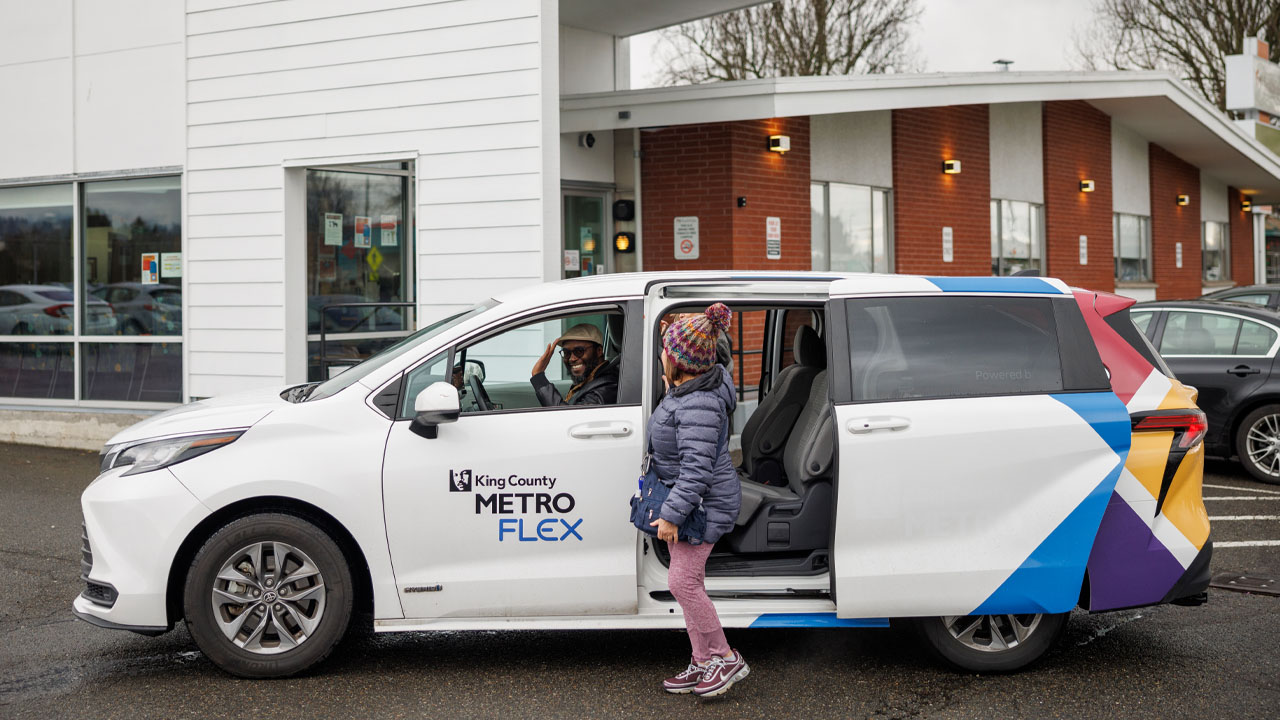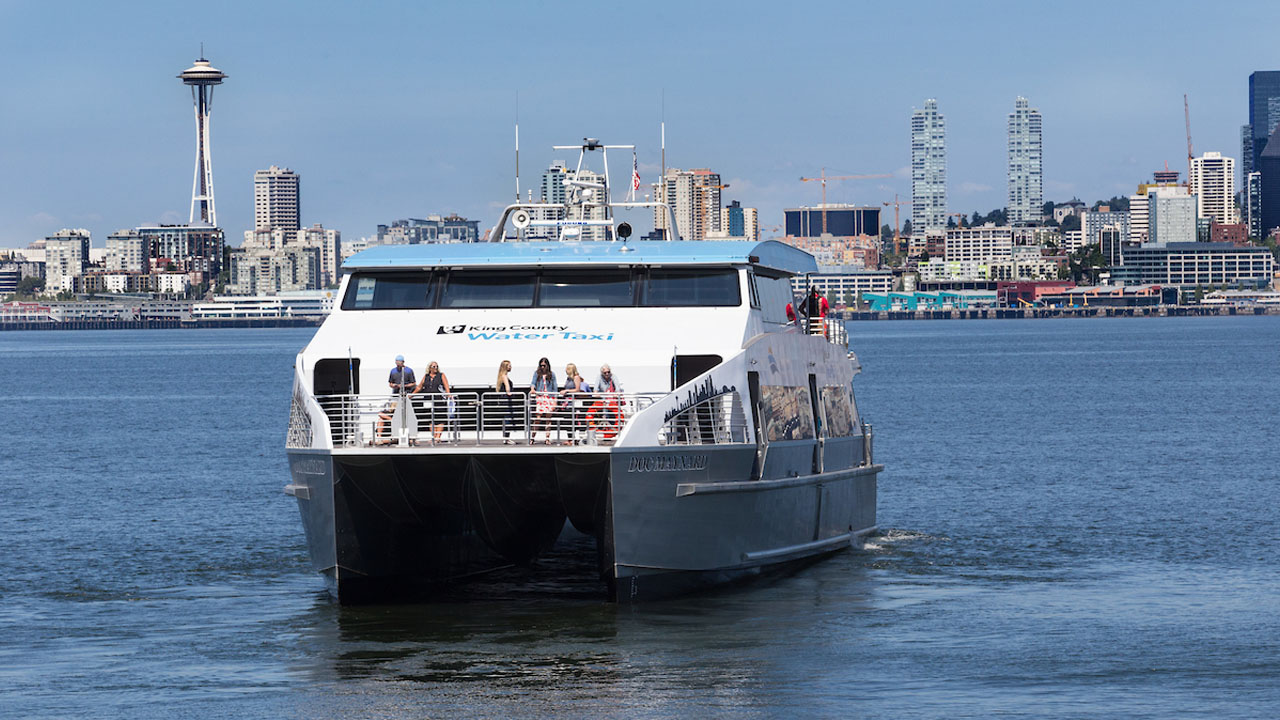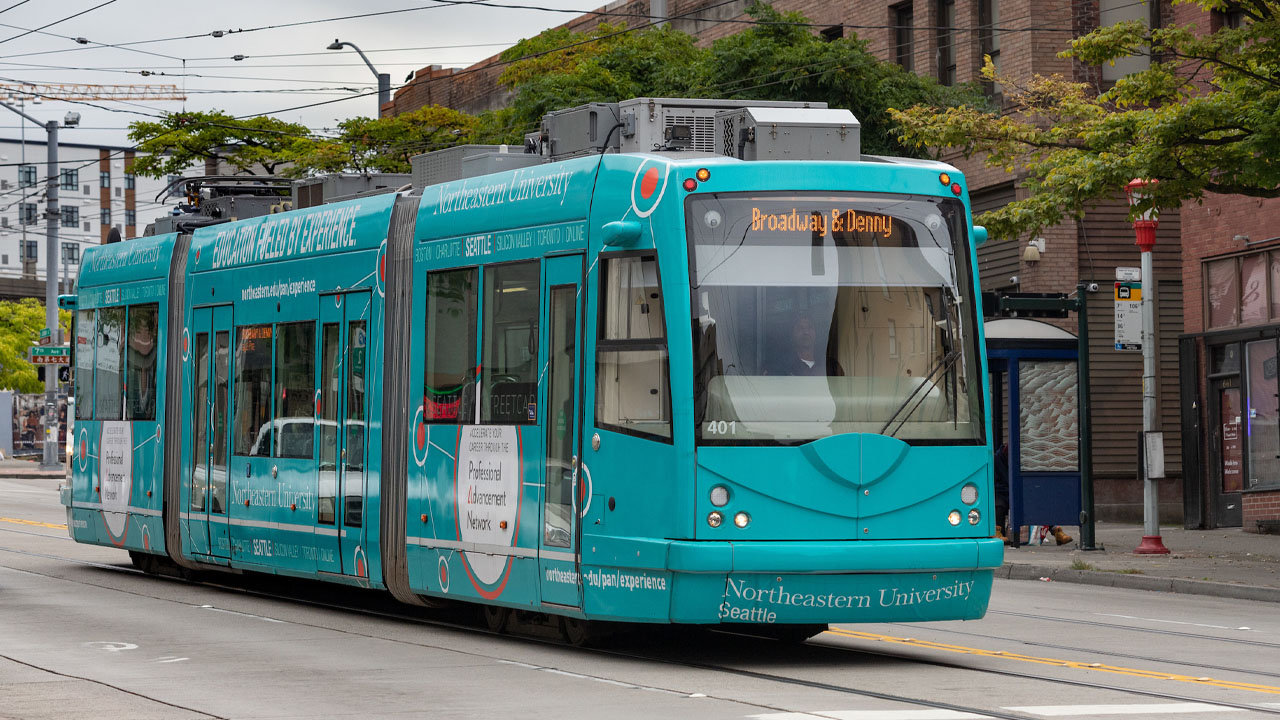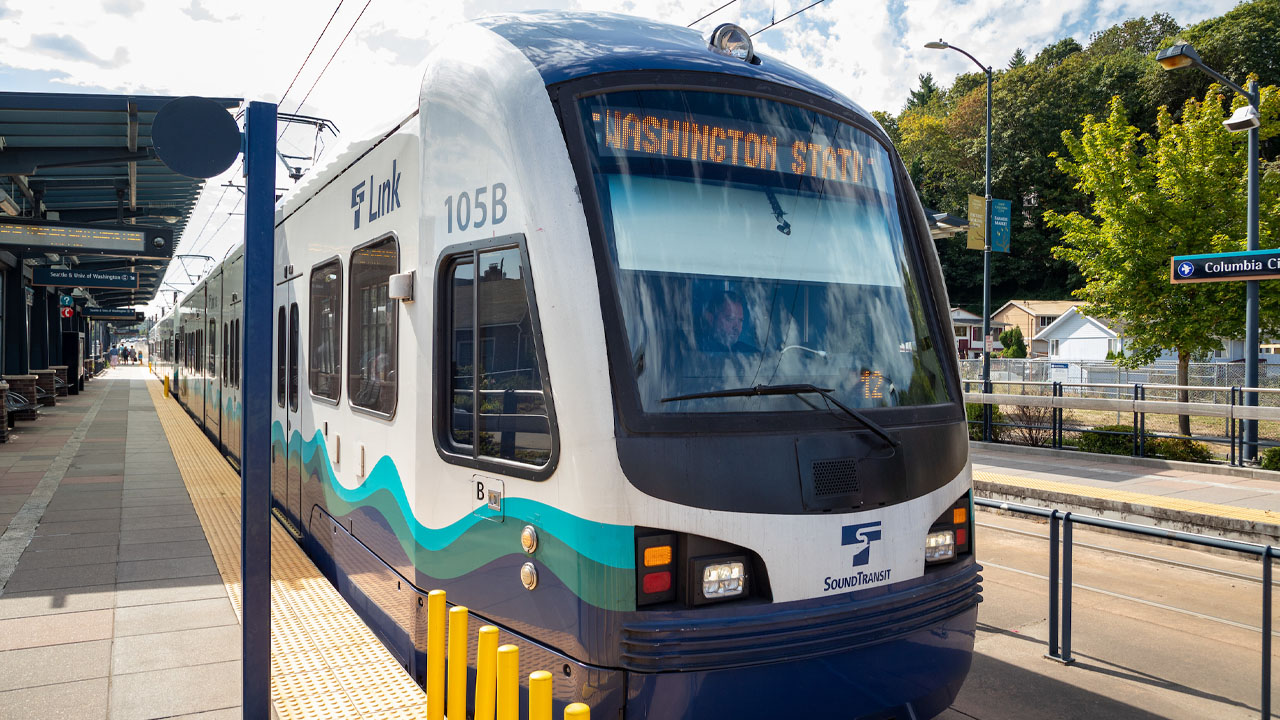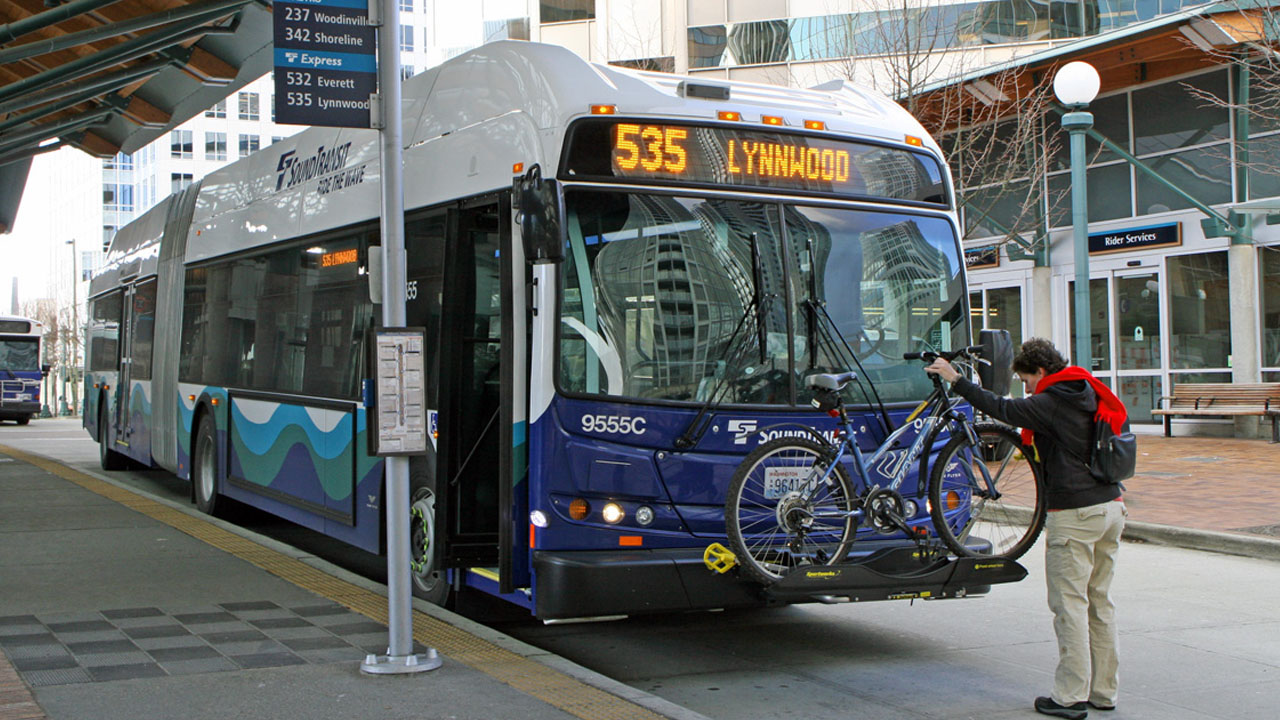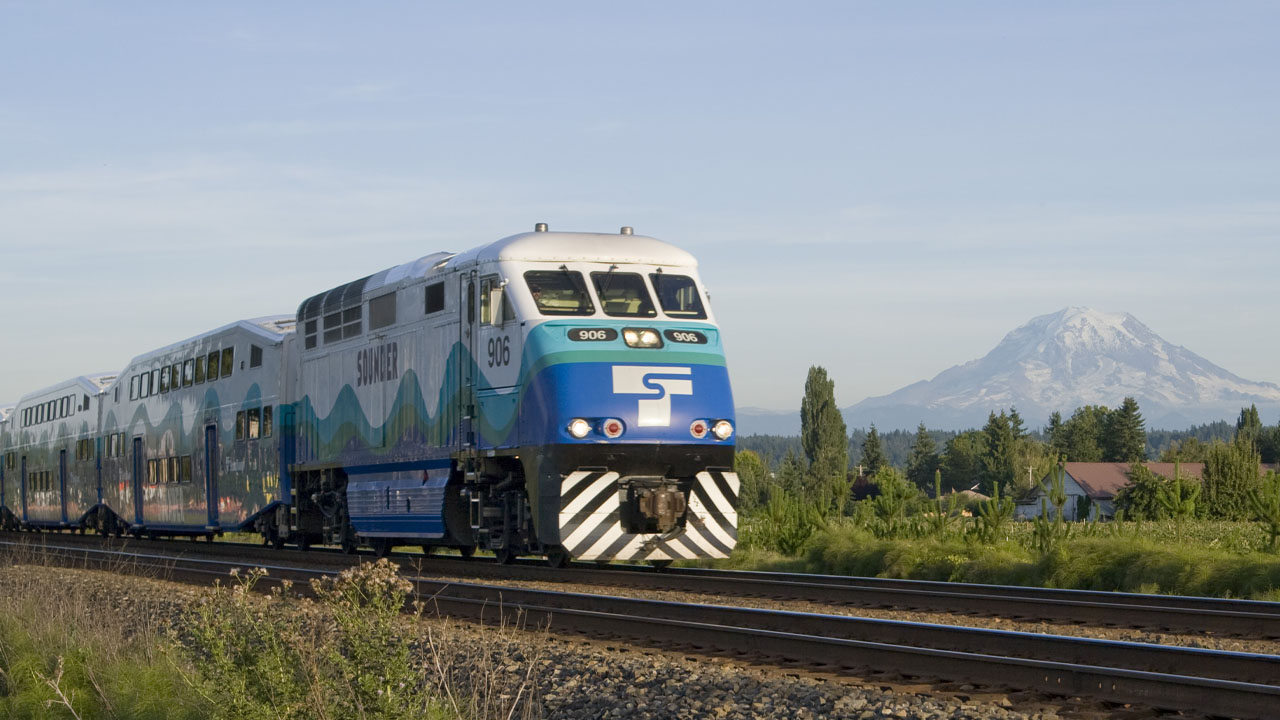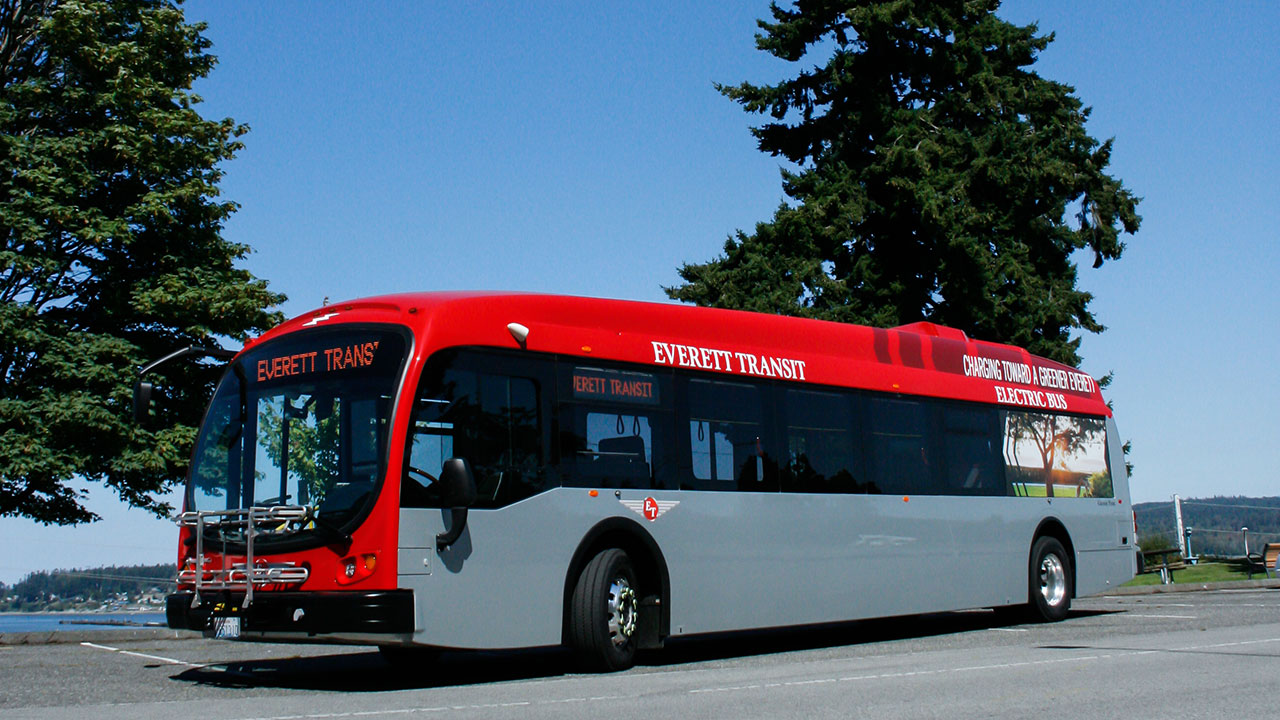Eligibility
Residents of King, Pierce, and Snohomish counties, who are enrolled in one of six state benefit programs, can get a subsidized annual pass for trips on King County Metro, Community Transit, Everett Transit and Sound Transit services. Qualify, sign up and receive the subsidized annual pass at Public Health and Catholic Community Services.
The six state benefit programs
- Temporary Assistance for Needy Families (TANF)/State Family Assistance (SFA)
- Refugee Cash Assistance (RCA)
- Aged, Blind, or Disabled Cash Assistance (ABD)
- Pregnant Women Assistance (PWA)
Not to be confused with WIC or Pregnancy Medical - Supplemental Security Income (SSI)
Not to be confused with Social Security Income or SSDI - Housing & Essential Needs (HEN)
Not to be confused with housing assistance such as HUD
To apply or for more information about these programs, visit washingtonconnection.org or call 877-501-2233.
Apply online
Go to the Reduced Fare Portal
What you'll need:
- Your ProviderOne number OR DSHS Client ID number
- A copy (.jpg, .png, .pdf, .heic) of your Photo ID
- Most recent copy of your DSHS award letter (Your TANF award letter or HEN award letter will work.)
Note: Approved ORCA LIFT agents, completing the form on behalf of a client, may verify photo ID in person instead of uploading a copy.
Apply by telephone
Public Health – Seattle and King County's Community Health Access Program
Phone:
800-756-5437
Hours:
Monday to Friday, 8am to 5pm
(closed 1pm to 2pm)
Apply in person
ORCA LIFT/Public Health Office
Address:
201 S Jackson St, Seattle, WA 98104
Hours:
Monday to Thursday:
8:30 am to 4:30 pm
(closed 1pm to 2pm)
Friday:
Office closed
Federal Way Public Health Storefront
Address:
1640 S 318th Pl, Suite B, Federal Way, WA 98003
Hours:
Monday to Thursday:
8:30 am to 5pm
Friday:
Office closed
Catholic Community Services - Randolph Carter Center
Address:
100 23rd Ave S, Seattle, WA 98144
Hours:
Monday to Friday:
9am to 4pm
Wednesday:
9am to 12pm
How to ride
Tap your card when you board
As you board the bus, tap your ORCA card on the card reader inside.
Tap your card before boarding
Before boarding Link light rail, RapidRide, the Sounder commuter train, Seattle Center Monorail and the Seattle Streetcar, tap your ORCA card on a yellow card reader outside/on the platform. When you exit the Sounder, re-tap your ORCA card to complete the trip.
Scan your card
When boarding the Water Taxi, Metro Flex and Trailhead Direct, the loading agent or cashier will scan your card.
How to ride other transit systems
Your subsidized annual pass will only cover your fare on certain transit systems. See what you can ride below. To ride on other systems (Kitsap Transit, Pierce Transit, Washington State Ferries), you will need to pay your own fare by loading your card with E-purse money before your trip. You will receive the ORCA LIFT fare on most transit agencies around the Puget Sound.
FAQ
You can add E-purse value to your same ORCA card and receive the lower ORCA LIFT rate on Kitsap Transit and Pierce Transit. Learn about how to add E-purse value to your card. If you have questions about how to add E-purse, call 206-553-3000.
You can transfer between participating agencies (Metro, Everett Transit, Sound Transit, Community Transit, Seattle Center Monorail and Seattle Streetcar) free of charge—just be sure to tap your ORCA card each time. If you need to travel on another transit agency, you will need to load your ORCA card with E-purse funds. Once you’ve loaded the card, you can tap it on any transit agency and transfer to other systems within two hours.
No, there is no visible difference between a regular ORCA LIFT card and an ORCA LIFT card loaded with a subsidized annual pass. However, the subsidized pass card will have a sticker on the back showing when the pass expires. Please renew the card on the 15th of the month before it expires.
You will need to get a new ORCA LIFT card when you enroll in the subsidized annual pass. Your current cards will be blocked within 7 days.
- Any unused funds will be transferred to your new ORCA LIFT card and you can use those funds as E-purse to ride on other transit agencies.
- If your current ORCA LIFT card has a PugetPass, that card will be blocked at the start of the next month.
All RRFP cardholders that choose to enroll in the subsidized annual pass program will also need to get a new ORCA LIFT card, valid for 2+ years.
If your RRFP card is valid for at least another 12 months, you can choose one of two options:
- Have the subsidized annual pass added onto your ORCA LIFT card and keep your RRFP card as is.
- Request to add the subsidized annual pass onto a new RRFP card and keep your ORCA LIFT card as a regular ORCA LIFT card (without a subsidized annual pass).
Contact DSHS at 877-501-2233 to see if you are eligible to enroll in the state benefit programs.
Eligibility for the six state benefit programs requires income at or below 80% of the federal poverty line, plus more requirements. Requirements are unique to each program and may include factors such as available funds.
No. Eligibility is currently tied to enrollment in one of the six state benefit programs. Metro will use program evaluation data, to determine program changes, including future expansions. Check back here for updates.
Nothing will change until you need to re-enroll after 12 months. An ORCA LIFT card can continue to be used to ride at a reduced fare until the date printed in red on the back of the card, regardless if your income changes. The subsidized annual pass will be valid for up to 12 months, regardless of whether your enrollment status in one of the benefit programs changes.
You are eligible to renew your subsidized annual pass if your current subsidized annual pass will expire within one month and you are still enrolled in one of the six qualifying state benefit programs. You can apply to renew your subsidized annual pass by any of the options listed above in the “How to apply” section. If you renew your subsidized annual pass, you will get another annual pass added onto your same card.
If you no longer qualify for the subsidized annual pass, you can still use your ORCA LIFT card to ride transit at a reduced fare, until the date written on the back of your ORCA LIFT card. You can load value online at myORCA.com, in person at an ORCA customer service office, at a participating retailer or at a ticket vending machine. You can also load value or find out more information on how to load value onto your card by calling Metro’s Call Center at 206-553-3000.
To replace an ORCA LIFT or RRFP card that was loaded with the subsidized annual pass, customers should contact Metro’s reduced fare phone number at 206-477-4200. The remainder of the subsidized annual pass will transfer onto their replacement ORCA LIFT or RRFP card.
Customers can choose to have their replacement card mailed to them or can arrange to pick up their replacement card once it's ready at the King Street Center Metro Pass Sales Office. Replacement cards will be offered at no cost to customers.
Background
About the program
In response to a 2019-2020 budget request by King County Council, Metro worked to establish a new income-based fare program for those who cannot afford the other reduced fare options. To create an equitable implementation plan, Metro collaborated with a stakeholder advisory group, prioritizing the mobility needs of priority populations, including people of color, low-income residents, limited or non-English speaking communities, and immigrants and refugees. Metro’s rigorous program evaluation, will guide future program adjustments.
 Translate
Translate

